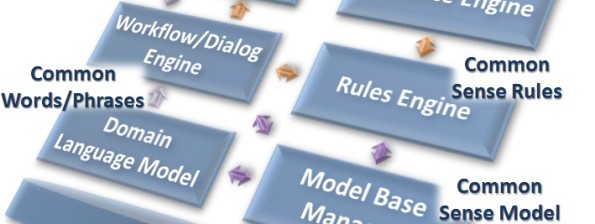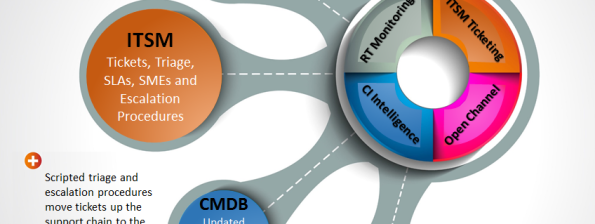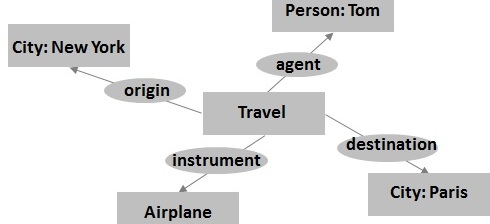Tag Archives: specialization
23 Feb Inference in Knowledge Apps

In Section 5 we discussed different kinds of knowledge, including existential or hierarchical knowledge and causal knowledge. In Section 7 we discussed modeling approaches and search techniques that could be applied to any kind of knowledge. We saw that causal knowledge can be modeled as chains of causes and effects, and that existential knowledge can be […]
08 Feb Just In Time Knowledge

One of the beautiful things about the human brain is it’s adaptability: people can “change” their minds at the last minute based on the changing situation (context). This is not trivial, but I believe that it is one of the characteristics of human cognition that is relatively straightforward to mimic in computer programs and apps. In […]
14 Jan Segregating Layers of Intelligence

Layered Architectures Layers appear regularly in my blog, whether it’s layers of the brain, layers of processing nodes in artificial neural networks or layers in systems architectures. Layering embodies important patterns in the inexorable move toward a knowledge economy with knowledge systems. In today’s post, I’m going to talk about what layering brings to enterprise […]
29 Dec Unhuman Expertise

Artificial Intelligence has suffered from a persistent scale problem: up to now, many techniques have been shown to work well and reliably in narrowly defined domains, but outside the domains of their expertise, they fall apart very quickly. No techniques of which I am aware, have exhibited common sense in the way we expect humans […]
17 Dec Visualizing Knowledge

Visualizing Knowledge – Automatic Generation Words are so symbolic that even symbolic thinkers, like me, understand more when there’s a picture to go along with the words. is partly explains my crazy use of images in this blog. The various forms of graphical representations are superb inventions that enable us to view and understand mathematical data […]
03 Dec Co-Responsibility in Hybrid IT

Operational Continuity takes a Village Today’s post departs from my current stream of topics because I am thinking about this subject often lately. I apologize for the ambiguous title, but I think it encapsulates what I want to talk about. “Hybrid IT” is a way of describing the technology supporting an organization in which the […]
20 Nov Identifying and Acquiring Knowledge

One of the simplest knowledge systems is a photograph. It consists of a systematically arranged collection of pixels and its design is based almost completely on framing and focusing. Specifying knowledge software involves framing the knowledge domain and focusing on the aspects that are meaningful to users, and the constraints that affect meaning. By so saying, […]
14 Oct Knowledge in Non-Neural Models

Non-Neural Models So far we have examined a number of models that are explicitly designed to be neuromorphic. This categorization is useful for two reasons: the apparent chaos or non-deterministic functioning of the brain is represented by these models; and neural networks explicitly use large numbers of distributed processors or neurodes that each contribute to […]






